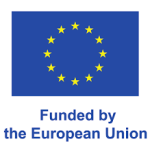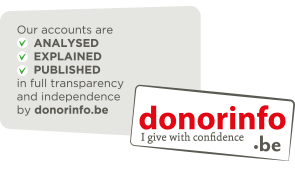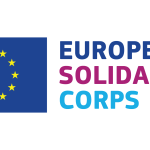For many young people, volunteering through the European Solidarity Corps (ESC) is a gateway to discovery—of new places, new communities, and most importantly, of themselves. In this interview, we meet Irene, the new Education Ambassador at Serve the City Brussels, who shares her journey from uncertainty to confidence as she takes on her first professional experience in the heart of Europe.
Arriving in Brussels with a traditional image of volunteering—often associated with humanitarian work abroad—Irene quickly came to understand the real and urgent needs that exist within a bustling, developed capital city. Through her work with children and fellow volunteers, she found that making a difference doesn’t always require going far—it often starts right next door.
From planning creative activities and bonding with young beneficiaries to learning how to manage responsibilities and work within a team, Irene’s time with the ESC has been one of deep personal and professional growth. In this interview, she opens up about her challenges, her highlights, and why she believes the ESC is a great stepping stone for young people looking for clarity, connection, and purpose.
How has your perception of volunteering and the European Solidarity Corps changed since you started?
IG: I feel like before doing this ESC in Brussels, I had this perception of volunteering, mostly abroad, doing humanitarian work in another country, for example. With STC I realized how much help is needed in a capital city in Europe that is developed and rich. I realized how easy it is to help and that you don’t have to go that far to help.
What have been the biggest highlights of your experience so far?
IG: My highlights are the special activities and trips I have help to plan and participated in with the kids, like the clay sessions or going to the zoo. I also remember when a young girl made a drawing of me and gave it to me at the end of the activity, that was really sweet! Overall I would say just doing fun activities with the kids.
Are there any challenges you’ve encountered that you didn’t expect, and how have you worked through them?
IG: One main challenge was being able to make precise to do lists and prioritize the most important tasks or goals. Instead of constantly adding up new tasks, I had to learn how to give enough time to the most important tasks and prioritize without feeling overwhelmed. Basically, I learned how to work in a professional environment since it was my first experience, but I solved those challenges with the support of colleagues and supervisors, adapting my tasks.
How do you feel you’ve grown personally or professionally since the beginning of your volunteering journey?
IG: Again, as it was my first experience, I’ve learned a lot! Mostly, I learned how to work together with a team, to organize activities, and interact with our beneficiaries. On a personal level, I have also learned how to always keep an open mind.

What feedback or advice would you give to the European Solidarity Corps based on your experience so far?
IG: When I started my volunteering, I was supposed to do a welcoming training session with the ESC, but the training was quickly full, and I didn’t get a spot. I would advise organizing differently the welcoming sessions by either planning more during the year or having more capacity so more people can attend.
Is there anything you’d like to accomplish or focus on in the remaining months of your volunteer period?
IG: I would like to go to more projects. At the start I was going a lot to the different projects, then I ended up supporting often at the office. But from now, I would like to find a better balance between being at the office and visiting projects, which requires a lot of organization since many projects happen outside of working hours.
How have your interactions with other volunteers or locals influenced your experience?
IG: In my position, I interact a lot with all our volunteers, which is really nice. There are also other ESC volunteers at the office, and it is nice to have colleagues that can relate to my experience, also for more personal struggles such as being away from home. Overall, I have a very positive experience interacting with all the volunteers. It is nice to see that there is a community of people who want to help and that, as we say at STC: many people doing small things together can make a big impact. It’s just great to realize you’re not the only one that wants to help your community, and that many other people are here to help as well.
Looking back at the first half of your volunteering year, what would you say to someone considering joining the European Solidarity Corps?
IG: I would recommend doing an ESC to people that recently graduated and don’t necessarily know what to do next. Also, because in some countries the educational programs or systems can be vague and lack practical opportunities. Thats why I think it is a great experience to understand what you like and don’t like, and to gain some experience through helping others, which is always nice.

Financed by the European Union. The views and opinions expressed are those of the author(s) and do not necessarily reflect those of the European Union or the International Youth Bureau. Neither the European Union nor the granting authority can be held responsible for them.







